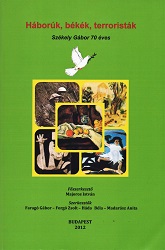
We kindly inform you that, as long as the subject affiliation of our 300.000+ articles is in progress, you might get unsufficient or no results on your third level or second level search. In this case, please broaden your search criteria.

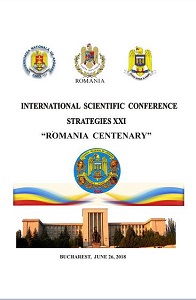
Our paper intends to underline several diplomatic perspectives, as reflected within the documents of the time, concerning one great European power, such as Germany and its representatives’ perceptions about the preparatory events and the whole process of realizing the 1918 Great Union of the historical Romanian provinces with the Romanian kingdom. We are taking into account a European and international political environment strongly supported by the US, capitalizing on the ascension of movements for national emancipation from imperial dominance, and the rise of the nation-states (thus proving the creation of a Westphalian-type of order, in full ascension at the beginning of 20th century, we could say).
More...
At the Seventh (April) All-Russia Conference of the R.S.D.L.P.(B.), Lenin had given the peoples the right to self-determination and as a result Bessarabia could reunite with Romania in 1918. The USSR never acknowledged this unification. In January 1918, the US president launched the 14 points. In article 9 was stipulated the right of peoples to self-determination and, under these circumstances, Bucovina and Transylvania could unite with Romania. The Romanian-Russian relations have not progressed much and have been characterized by lack of confidence. The relations with the USA have progressed positively: Romania is a NATO member state, and the statements made at the signing of the Strategic Partnership for the 21st century between Romania and the United States of America (2011) confirm the fact that the long-term relation between the two states is good and developing.
More...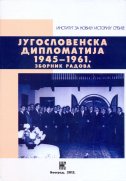
The prominent political functionary of Tito’s Yugoslavia, Veljko Mićunović, changed into diplomatic service in early 1950s, where he would remain for the next twenty-odd years. Apart from serving on high posts in the Ministry of Foreign Affairs and in the Federal Parliament, for more than 20 years he was also on the most prominent diplomatic positions abroad as ambassador to the USSR and the USA. He served in Moscow two times: 1956-1958 and 1969-1971, and in Washington between 1962 and 1967. He represented with decision and successfully the foreign political orientation of Josip Broz Tito and the Yugoslav government and worked actively to improve the bilateral cooperation with two leading powers of the time of which the international position of Yugoslavia mostly depended. Mićunović’s experiences from serving in Moscow were clearly different, although on both occasions he was appointed ambassador at the time Yugoslav-Soviet relations were improving: for the first time after reconciliation after the several years long conflict that started in 1948 and for the second after a severe cooling down that lasted for a year due to the events in Czechoslovakia. On the first occasion Mićunović established very good communication and even friendly relations with Nikita Khrushchev and many other persons from the top of the State and Party establishment. Basically he managed to retain that position until the end of his tenn in Moscow, despite the significant deterioration of the bilateral relations due to the events in Hungary, and the deepening of the ideological gap because of the adoption of the new Program of the Union of the Communists of Yugoslavia. This circumstance enabled him to send to Belgrade and to Tito in person first hand information that certainly were important element for determining the political course regarding the USSR. However, during his second tenn Mićunović didn’t manage to build up such relations. The Soviet leader Leonid Brezhnev received him only fifteen months after his arrival in Moscow, this being, together with the farewell visit couple of months later, the only opportunity to talk to him. He also met Kosygin, Gromyko and other high officials several times, but this was still much less than his first stay in Moscow, and probably less than Mićunović had expected. As the main reasons for such treatment he adduces the fact that the ruling set didn’t forget his friendly relations with Khrushchev and his public speeches in which he condemned the intervention in Czechoslovakia. One should add that political circumstances, both international and bilateral, as well as the operating style of the Brezhnev leadership in the early 1970s, were substantially different then those of the times of his first term of office in Moscow.
More...
The three and a half years the former leader of the Independent Democratic Party had spent on the post of the Jugoslav ambassador to Washington were spent in the atmosphere of post-war reconstruction; new enmities, block divergences, changes that put the country he was representing in a particular situation. The internal transformation of Jugoslavia, deterioration of relations with the USA during the first postwar years, but also the basic change of Jugoslavia’s situation that was soon caused by the Resolution of the Informbureau as well as the responsibility the new circumstances were imposing, made the post of the ambassador in Washington extremely important. Kosanović’s term of office devolved in the atmosphere of these events. However, apart from representing the interests of his country, his diplomatic activity comprised also other, on the first glance less relevant tasks, such as maintaining contacts with other diplomats, journalists, public persons, participation in social events, establishing relations with numerous emigrant communities in America. At the same time, a diverging approach to certain problems that was often opposed to the stance of the official Belgrade, diverging views on working methods in America, on fonns of propaganda activities, clearly stated differences in approach to emigrants, but also to the American public, were a constant feature throughout his term of office. The functioning of the Embassy was additionally encumbered by bad relations with the Communist Party members in America, ideological, methodological and even personal divergences. The final result and the corollary was Kosanović’s dismissal from the post of the ambassador. Nevertheless, dissatisfaction, and even bitterness caused by his recall, didn’t estrange Kosanović from the new authorities nor did they jeopardize his position of a loyal official of the new Jugoslavia.
More...
During the period the distinguished American diplomat and doctrinaire George Kennan spent in Yugoslavia, the Yugoslav-American relations have reached their nadir since Tito’s clash with Stalin in 1948. Aware of incapability to reverse this trend, soon after his accreditation in Belgrade, Kennan asked of his government to be recalled from Yugoslavia so he could continue his career of a scholar and professor. Since his diplomatic mission to Moscow in 1952 had a similar ending as he had been declared persona non grata after an inadvertent statement, it seemed that there was a large discrepancy between Kerman’s political capability to observe the rules set by the logic of diplomatic service and his extremely high doctrinaire achievement that was inbuilt into the platform on which the relations within the Cold-War tinged international community were based throughout four decades. However, it is dubitable if any person who would have taken over the duty of the ambassador to Yugoslavia could have prevented the obvious cooling of the Yugoslav-American relations. It is impossible to answer this question without a comprehensive reconstruction of the events that decisively influenced the international relations, but also of the events that decisively determined the international position of Yugoslavia and her foreign political priorities. It is obvious that Kennan came to Belgrade when a turn for the worse could have been detected in the Yugoslav-American relations. It was the time when the powers that be in Belgrade and in Washington saw in the international strategy that would, in near future, lead to a degree of mutual confrontation, the means of overcoming the negative results of foreign political actions of the previous period. Namely, at the time Kennan was taking over the duty of US ambassador and explaining the tenets of the future American policy in the developing countries, Tito was finishing the last preparations to unite these countries into a single front aimed directly against the attempts of the former colonial powers and the USA to establish their dominant influence in Africa, Asia and Latin America. Obsessed with fear of uncontrolled spreading of the „virus of Marxism- Leninism“ in poor countries, American officials saw everywhere in the Third World the dominoes set and ready to fall upon slightest disturbance. In the wake of such thinking, the conclusion imposed itself that if the malady isn’t nipped in the bud, it could spread from Cuba - only 90 miles off the US coast - to other Latin American nations. On the other hand, almost simultaneously, in the Yugoslav political circles the doctrine was taking shape of necessity to form a movement of non-aligned countries that would secure for Yugoslavia a role of an important factor in the international relations and that would boost its prestige in the world. Trying to become the leader of the poor and disenfranchised peoples of the world, during their meeting in Belgrade in September 1961, Tito adopted the stance of the most severe critic of the rich Western states in which he saw the main culprits for the existence of the deep gap between the developed and the undeveloped parts of the world. Tito’s unrestrained and unbalanced anti-American attitude didn’t contribute to the realization of his idea of the need to fonn a non-aligned movement, but it did cause a hale of dissatisfaction in the Western public and made relevant the cessation of further American economic and financial aid to Yugoslavia. It is less than likely that any ambassador, no matter how able and enterprising, could have stop an anti-Yugoslav campaign in the American Congress after the calumnies Tito aimed against the USA during the Belgrade summit. The corollary was passing of restrictive Congress amendments concerning economic aid to Yugoslavia and decrease of the interest of the American administration in cooperation with Yugoslav officials. Under such circumstances Kennan had less elbow-room to organize the previously proposed Tito’s visit to the USA, on which the Yugoslav side doggedly insisted. Kennan’s real contribution to the normalization of the Yugoslav-American relations could be seen only after his recall from Yugoslavia. During the time that lapsed between his demand to the State Department to be recalled from Belgrade and the time it was conceded, Kennan contributed significantly to the toning down of the animosity between Belgrade and Washington. His benevolent explanations concerning the ways out of the crisis that paralyzed the bilateral relations, influenced the positive change in the foreign political approach of the Yugoslav officials. Kennan’s presentations in Washington, as well as his exhaustive telegrams, had an extremely positive effect. At the time he returned to his academic profession at the Princeton University, he could be satisfied. It was the time when Tito finally visited Washington and restrictive Congress amendments concerning Yugoslavia had been repealed. The age of close Yugoslav-American cooperation set in again.
More...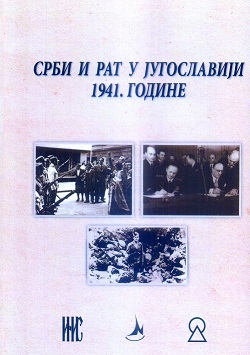
The article examines the Bulgarian-Yugoslavian relations in times when the political layers on the Balkans are seriously shifted. Under the pressure of Nazi Germany the Versailles peace system collapses everywhere in Europe. On the Balkans the countries in the region try to defend their interests, maneuvering between the demands of the major European Powers.
More...
The paper gives the survey of the archival sources and literature relevant for the subject. The author describes the American policy towards Yugoslavia in 1940 and particularly in the first months of 1941. It was passive and confined to observing the situation in 1940, but as the pressure of the Third Reich on Yugoslavia increased in 1941 it became increasingly active. The American envoy William J. Donovan and the ambassador Lane tried to convince the leading Yugoslav politicians not to join the Tripartite Pact, but their efforts were in vain since USA could not offer any real aid. The author describes how ambassador Lane saw the bombardment and occupation of Belgrade. In the final part of the paper the author deals with the closing-down of the American Embassy in Belgrade and the Consulate in Zagreb in summer 1941.
More...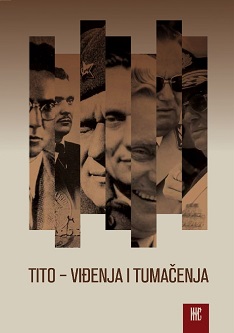
The article scrutinizes last major diplomatic engagement of Josip Broz Tito on the international scene by tracking his activity before and during the Sixth Summit of Nonaligned Countries in Havana, September 1979. Confronting with Fidel Castro’s attempt to tilt the movement closer to the policies of the USSR, Tito developed intense, yet elastic platform of „the return to the essence of nonalignment“. He succeeded to sidetrack Castro in the manner which did not cause the paralysis, division and marginalization of nonalignment.
More...
Although highly fragmental, this attempt of insight in American view on Tito and Yugoslavia during the fifties, presents some basic premises that have characterized this relation. The representatives of American administration at all levels had a tendency to equalize the mentioned terms, mostly due to the widespread conscience of Tito’s decisive influence on the state’s policy course. That tendency is mostly visible in political and diplomatic documents, slightly less in military, while the list in economical ones. His regime has been described as the „communist dictatorship", but at the same time has been noted that exactly such its nature enabled the US to deploy the „strategy of wedge" into Eastern bloc. American analyses show that support to a renegade communist country and its leader would have provided much more political benefits than mere acquiring of ideologically similar ally. That policy didn’t have many genuine sympathies within the US’ officials, but its premises were the prevailing ones while decision making in regard to Yugoslavia. Americans knew that the Tito’s main intention was to secure as more as neutral position between the blocks, providing through it few important strategic advantages to the West: consolidation of NATO’s southern flank, protection of important Ljubljana’s gap and denial of Soviet presence in Mediterranean. Measuring all the related activities this way, US were willing to allow or, at list, not to eagerly oppose Tito's political projects of non alignment, knowing that under his government, Yugoslavia was to pursue the politics more on their, than on SSSR's favor. For given circumstances, it was more than enough.
More...
Indians familiar with President Josip Broz Tito’s nation building efforts held him in high esteem. His visits to India beginning in 1954 were stunningly successful. Tito was a close friend of Prime Minister Jawaharlal Nehru. They held similar views about international affairs and were stalwarts of the Nonaligned Movement India and Yugoslavia cooperated in the United Nations and elsewhere. Indians mourned the destruction of Yugoslavia, but the present generation is not familiar with the life and achievements of Tito.
More...
The development of the Yugoslav-Czechoslovak relations after WWII influenced also the streangthening of esteem enjoyed by Josip Broz Tito in Czechoslovakia. The Czechoslovak public enthusiastically greeted the Yugoslav president in March 1946 on occasion of his official visit to Prague and Bratislava. The interest in Josip Broz Tito and Yugoslavia increased after that visit still more. Streets, cultural associations, a students' hostel and several companies in Czechoslovakia were named after Tito. However, the difficult political circumstances in summer 1948 caused the change in the relations between Yugoslavia and the USSR, and at the same time between Yugoslavia and Czechoslovakia. The Yugoslav-Czechoslovak cooperation was severed and Tito's name discarded by the Communist Party of Czechoslovakia and the official government organs. The larger part of the Czechoslovak public was above all surprized at the chage in the relation towards the Yugoslav marshal.
More...
The visit of Josip Broz Tito in March 1971 was the first official visit of a Yugoslav chief of state to that country. It was originally set for December 1970 but it was postponed by several months. The reasons for the delay were political differences between the two countries revolving around the questions of not definitively determined borders, situation of minorities, citizenship and property that remained open after the Memorandum on Agreement had been signed and about which the two states conducted futile secret talks during the 1960s. During the several months long intensive preparations Yugoslav officials strove to include these bilateral moot questions into the agenda of the visit Slovenia particularly insisted on it, being primarily interested in regulating the status of the Slovene minority in Italy. On the other hand, the Italian political circles strove to avoid discussing these topics and to lend the visit a protocol character. Differing views on the contents of the talks and the character of the visit spurred the official Belgrade to postpon the visit After this decision both countries tried to overcome the misunderstanding and to realize the visit. The most important step in that direction was the meeting of the two foreign ministers, Aldo Moro and Mirko Tepavac in Venice in February 1971. The importance of this meeting lay in the fact that the unsolved bilateral matters were treated in an official form for the first time and on the level of ministers at that Only after this meeting the visit could be realized. During the visit the talks ran on three levels. Tito devoted most of the time to talks about international matters. The unresolved bilateral questions were the topic of talks between Tepavac and Moro, whereas economic topics were discussed between the member of the federal government Tomo Granfil and the minister of foreign trade Mario Zagari. Summing up the results of the visit both parties assessed it as a big success because a favourable political atmosphere was created for resolving the remaining open questions.
More...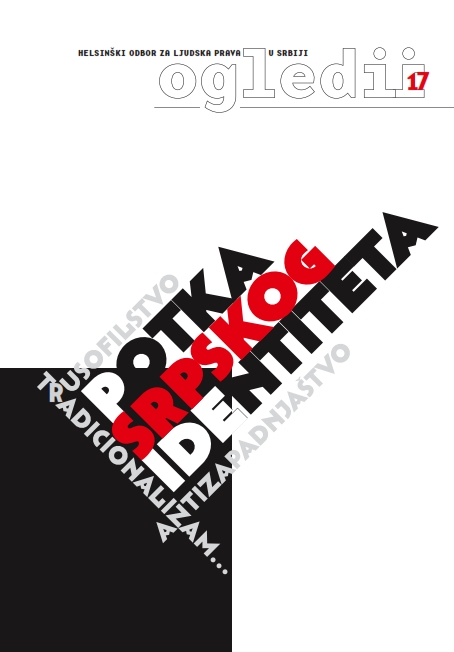
U ovom tekstu se, na osnovu višegodišnjih opsežnih istraživanja, nastoji rezimirati istorijski kontekst pojave, međusobnog odnosa, razvoja i nejednake utemeljenosti dve glavne društvene ideje u novovekovnoj Srbiji – liberalne i socijalističke. Uz sve sličnosti sa balkanskim narodima pod Turskom i sve razlike sa južnoslovenskim narodima pod Austrougarskom, srpski narod se, što nije bez značaja i za istoriju pomenutih ideja, izdvaja revolucijom na početku XIX veka (1804).34 Ona je utrla put ka oslobođenju i ujedinjenju, odnosno ka novovekovnoj državi srpskog naroda, koja je tokom jednog i po veka vodila višre ratova, promenila dosta ustava, poprimala različite oblike (autonomna kneževina u okviru Turske, nezavisna kneževina, kraljevina, republika). [...]
More...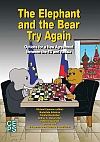
The concept of this paper is grounded in the understanding of EU-Russian relations as an encounter of two subjects in transformation, conducive to the formation of a sphere of inter-subjective communications that might be either divisive or cooperative. Both connections and disconnections between these two international subjects are discursively moulded and, therefore, grounded in a certain type of vocabulary with a number of interrelated concepts at its core, including those of neighbourhood, exceptionality and the political. It is exactly through comprehending this vocabulary that one can unravel the logic of deep asymmetry embedded in the EU-Russian relationship.
More...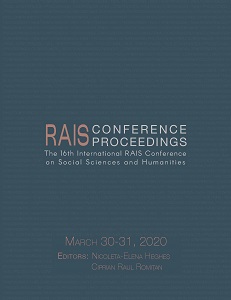
The stage of the relations between Romania and Turkey, at the political-diplomatic level, has seen an ascending development as a result of the high level visits, thus laying the foundations of the formation of friendship groups within the two parliaments, contact sand mutual visits at the level of the ministers, of municipalities. There was, however, a moment of stagnation, which was not a particular feature but a general feature that manifested itself both in Turkey's external relations and in domestic political life, with the formation of the Naim Talu government, a transition al government. It could engage in large-scale external relation sanctions. The Turkish press as well as the diplomatic environment expressed interest in learning about the concrete problems, addressing Romanian diplomats in Ankara, the Czechoslovak ambassador, the adviser of the U.S. Embassy, the ambassadors of Bulgaria and Greece and one of the advisers of the R.F. German embassy.
More...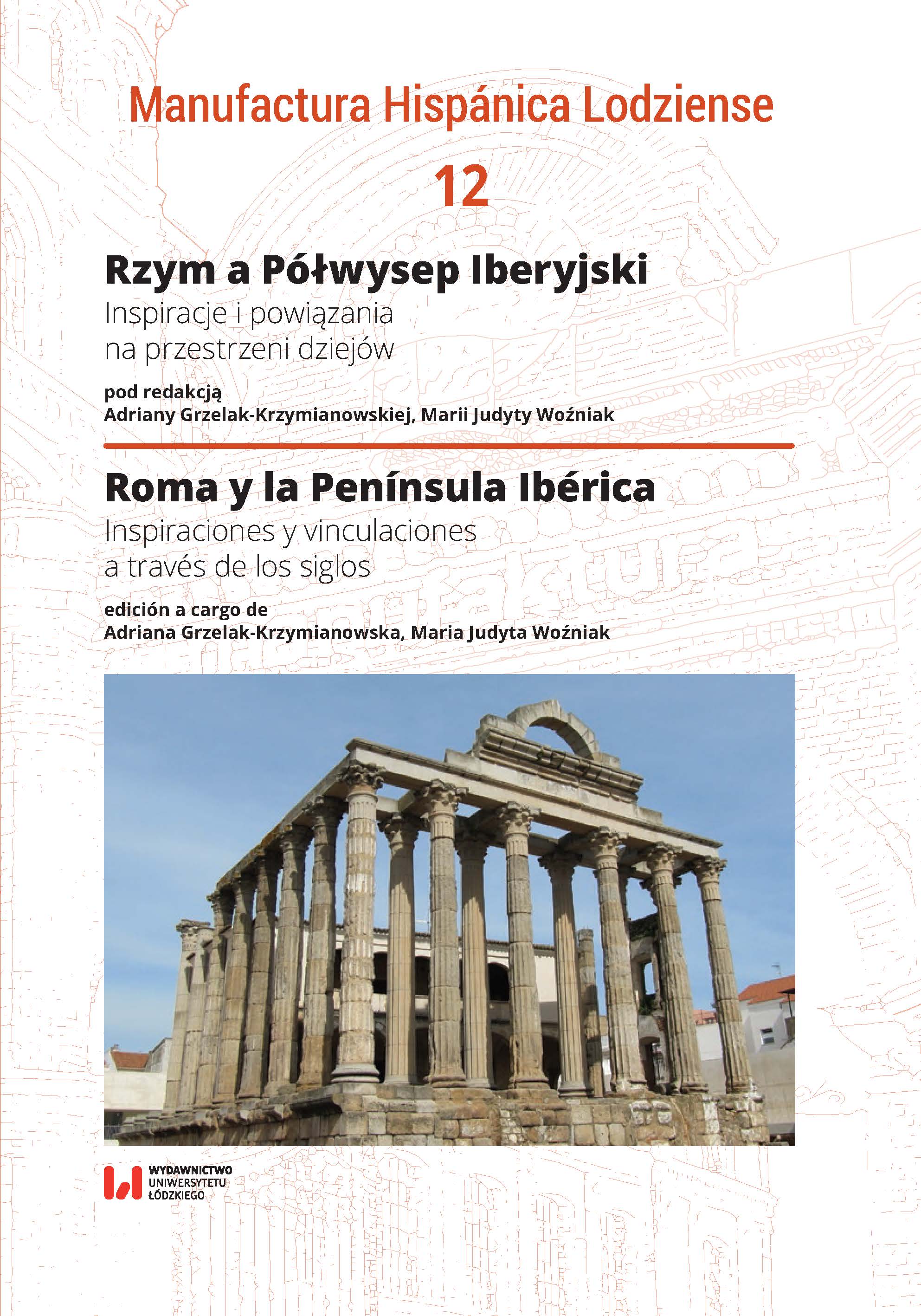
After the arrival of Rome in the western surroundings of the Pyrenees, some of the communities that inhabited the region quickly formed coalitions to defend their territory and were able to face the foreign power. For this purpose, strong mechanisms were used that were deeply rooted in the region and had proved to be capable of creating large military coalitions amongst different communities, giving them a certain military strength, and by adopting, when necessary, typically Roman military techniques. The attitude of some of these communities was clear evidence of the high degree of cohesion and ethnic consciousness that they had previously developed.
More...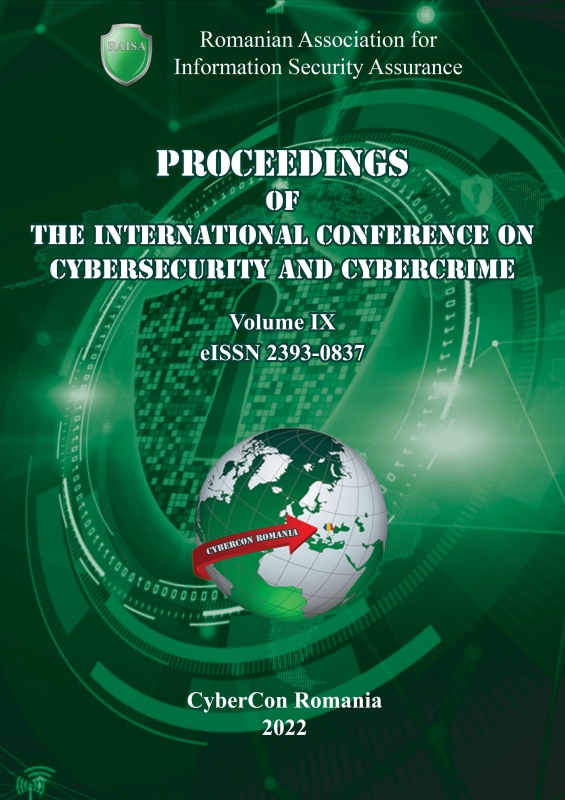
The current paper intends to be a foray into the aspects related to digital diplomacy. It presents the main working definitions and key legislative aspects as well as the Romanian case study, what have we done and what needs to be done.
More...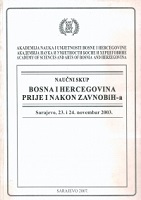
U svom prilogu autor analizira djelovanje međunarodne diplomatije u vezi sa situacijom u Bosni i Hercegovini i tokom rata na tlu Bosne i Hercegovine i razlaže odnos te diplomatije prema njoj kao državi i njenim institucijama. Autor ukazuje na nejedinstvo međunarodne javnosti i politike u tom pogledu i na kompromise koje je ona iznudila da bi ostvarila nešto što jeste stanje mira, ali nije trajno stanje sigurnosti i normalnog života za ljude koji u Bosni i Hercegovini žive.
More...
U svom prilogu autor prikazuje dokumente koji se čuvaju u arhivama Crne Gore, a koji ukazuju na veze između Bosne i Crne Gore u vrijeme postojanja prve bosanske države. Nekoliko desetina tih dokumenata jasno govore o postojanju i trajanju tih država i postojanju veza između njih, ukazujući na njihov sadržaj.
More...